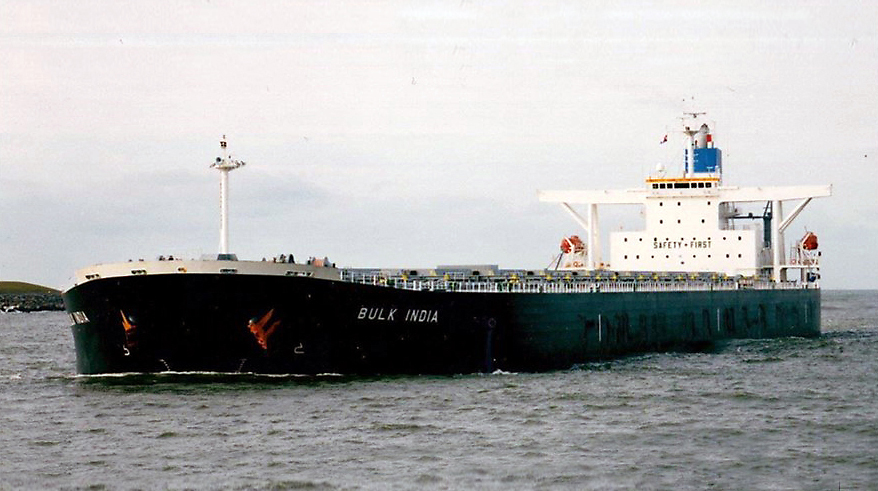
|
Key points:
|
A bulk carrier ran aground in a channel during its departure from Dampier, Western Australia when it lost steering and propulsion due to a total electrical blackout from a failed generator.
The ATSB investigation into the 11 March 2018 grounding found that the 298 metre, Panamanian-flagged Bulk India had lost all steering control and propulsion when shortly after the main engine was increased to full ahead, the ship’s auxiliary diesel generator engines shut down after the cooling water temperature controller failed, resulting in overheated cooling water.
In addition, when the ship’s emergency generator started in response to the blackout, it also shut down from overheating as a radiator fan belt that had failed several months earlier had not been replaced.
As a result, control of the Bulk India, which at the time had one tug in attendance and two pilots on-board, was lost and the rudder remained fixed at 20° to port. The ship turned to port and contacted the channel side, running aground.
The ship was recovered into the channel with the aid of tugs, before being taken out the channel to anchor. A subsequent dive inspection of the hull found evidence of contact with the bottom but no significant damage.
“The ATSB investigation found that the ship’s engineers did not immediately identify the problem and were unable to manually operate the cooling water temperature control valve in time to prevent the blackout,” said ATSB Director Transport Safety Mr Stuart Macleod.
“The investigation also found that while the problems in the engine room started about 13 minutes before the blackout, the two pilots on board were not informed of the situation. This removed the opportunity for the pilots to prepare for the loss of control, and delayed actions that may have assisted in a more timely or more effective response.”
The ship operator’s lack of adequate procedures to ensure that critical spares were identified and maintained in inventory to guarantee availability when required on board also contributed to the grounding, the investigation notes.
“This investigation highlights that ship operators and crewmembers should ensure that systems, machinery and equipment critical to the continued safe operation of the ship are thoroughly understood, as well as appropriately maintained and tested,” said Mr Macleod.
Subsequent to the grounding, the ship’s operator made improvement to their safety management and operating systems, as well as staff education and training processes.
Separately, Rio Tinto have revised escort towage arrangements for ships departing their facilities in Dampier following extensive simulation exercises and a review of existing risk assessments. As a result, a second tug remains in attendance with bulk carriers for further along the channel. Further, a comprehensive guidance manual for ship towage operations in Dampier and Port Walcott was developed.
Read the report: Grounding of bulk carrier Bulk India, Dampier, Western Australia, on 11 March 2018


